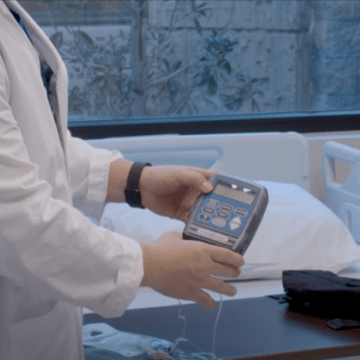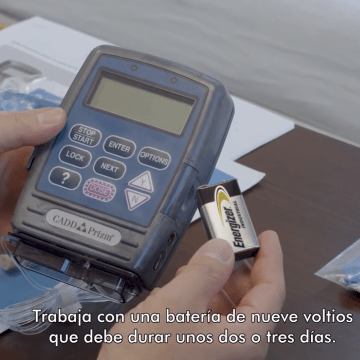Chemotherapy
Whether given alone or paired with other treatment options like radiation therapy and surgery, chemotherapy can play an essential role in your cancer treatment plans.
What Is Chemotherapy?
Chemotherapy, also called “chemo,” destroys, stops or slows the growth of cancer cells using anticancer drugs. While these powerful medications can be effective in killing cancer cells, they can also damage healthy cells in the process.
Your care team may recommend one of two types of approaches: systemic chemotherapy to target cancer cells throughout the body, or regional chemotherapy, which involves targeting the treatment to a certain area of the body.
How Is Chemotherapy Administered?
Chemotherapy is typically administered in an outpatient location, like a hospital or doctor’s office. Treatment can be given:
|
|
Talk to your care team about the specific chemotherapy drugs you'll be receiving and how they will be administered so you know what to expect.
How Long Does Chemotherapy Take?
Treatment sessions can last for hours at a time, so patients are encouraged to bring books, music or movies—anything that will provide comfort and help pass the time. It is also important to have a friend or family member available to take you to and from each appointment, since it is difficult to gauge how you will feel after treatment.
How Often Is Chemotherapy Given?
Chemotherapy treatment schedules are tailored to each patient. They can occur daily, weekly, every few weeks or monthly, depending on the cancer type and stage. Each treatment is followed by a rest period, giving the body time to recover and rebuild healthy cells.
Frequently Asked Questions About Chemotherapy
Side Effects of Chemotherapy
Chemotherapy side effects vary from person to person. By working closely with your doctor and caregiver, it is possible to successfully prepare for and manage any side effects you might experience. Chemo side effects may include:
- Fatigue
- Nausea, vomiting, diarrhea or other stomach upset
- Appetite loss
- Hair loss
- Constipation
- Fever
- Pain
- Mouth or tongue changes
- Easy bruising or bleeding
- Nail and skin changes
- Anemia (low red blood cell counts)
- Numbness (peripheral neuropathy)
- Changes in sexual function or libido
- Cognitive changes (chemo brain)
Talk to your care team about any symptoms you experience so they can suggest supportive care options to help improve your quality of life.
Here are some tips on foods to avoid while undergoing cancer treatment.
How Do You Know Whether Chemotherapy Is Working?
The care team will schedule follow-up visits and tests to evaluate whether the chemotherapy is working to destroy cancer cells and stop spread. Tests may include imaging, blood draws and physical exams. Your care team will provide updates on progress and may adjust the treatment plan if needed.
Watch the Mobile Chemotherapy Infusion Pump Education video on how to give yourself an infusion at home.
Mire el video educativo de la bomba de infusión de quimioterapia móvil sobre cómo administrarse una infusión en casa.
觀看移動化療輸液泵教育視頻,了解如何在家給自己輸液。
Chemotherapy Education
Ask your health care team for a one-on-one chemotherapy teaching appointment at the clinic. During this education appointment, a nurse will give you important information about your chemotherapy treatment, how to manage side effects of treatment, direct you to resources for information and support and to answer any questions or concerns that you or your family may have. Please call your health care team to schedule a chemotherapy teaching appointment.
Many of the downloadable booklets below are also available in print format at the Sheri & Les Biller Patient and Family Resource Center located on City of Hope's Duarte main campus.
- Chemotherapy and You: Support For People With Cancer (NCI) - English / La quimioterapia y usted (NCI) - Spanish
- Drugs, supplements and herbal information including chemotherapy drugs on Medline Plus - English / Medicinas, hierbas y suplementos Medline Plus - Spanish
Our Department of Supportive Care Medicine provides an integrated, interdisciplinary array of supportive care services and programs that address the many physical and emotional issues that can arise during and after treatment to help you navigate City of Hope and ensure access to the resources you need.


